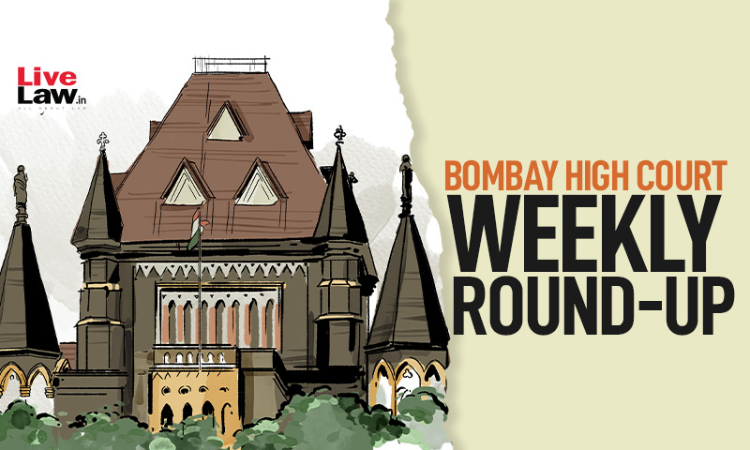Bombay High Court Weekly Round-up: June 3, 2024 To June 9, 2024
Amisha Shrivastava
14 Jun 2024 9:00 AM IST

Next Story
14 Jun 2024 9:00 AM IST
Nominal Index [Citation 278 - 283]Airports Authority of India Workers Union & Anr v. Under Secretary, Ministry of Labour & Anr. 2024 LiveLaw (Bom) 278Omkara Assets Reconstruction In the matter of ICICI Bank Ltd. v. Classic Diamonds (India) Ltd. 2024 LiveLaw (Bom) 279Azhar Basha Tamboli Ltd & Ors v. Ravi S Gupta & Ors. 2024 LiveLaw (Bom) 280Azhar Basha Tamboli v. Ravi S Gupta...
